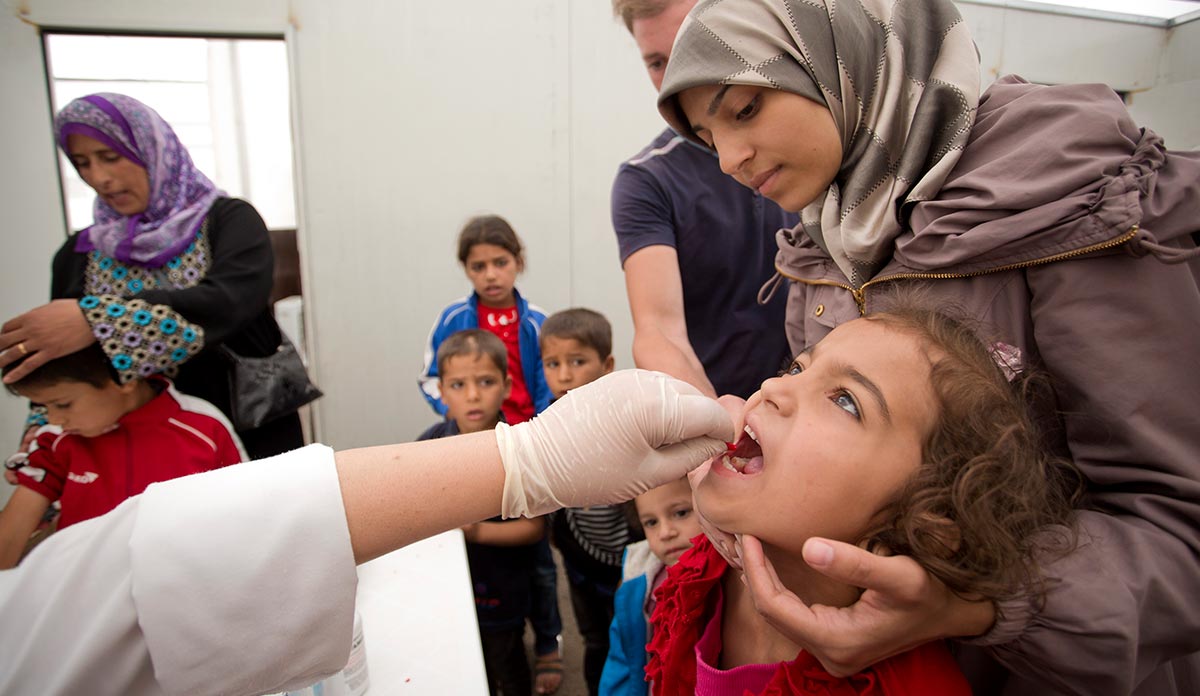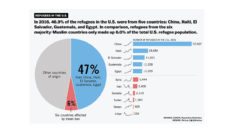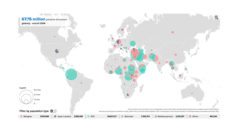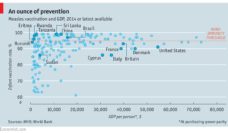The health of people coming into the United States is a high priority; one which was put on the radar of Americans during the Ebola crisis and again during the latest Zika outbreak. But it isn’t just emerging diseases that are of concern. Measles, mumps, and rubella, very old diseases, still place a substantial burden on health systems globally.
As I wrote in April 2017, the U.S. and other countries have fallen below the herd immunity threshold for measles. Exceeding the threshold is necessary for vaccines to be fully effective in protecting a community (the “herd”), as not everyone can get vaccinated. Approximately 95% of the population must be vaccinated in order to reach herd immunity. For widespread safety against outbreaks, it is imperative that immigrants to the U.S be vaccinated whenever possible.
Lee, et al. performed an evaluation of MMR vaccination among newly arrived refugees from Ethiopia, Kenya, Malaysia, Nepal, and Thailand. Results of this study indicate that most newly arrived refugees had received their vaccination — usually done by American health officials at the site of emigration — signaling that the U.S. overseas program for U.S.-bound refugees is functional. As the authors explain: “…vaccination is not required by regulation before resettlement…” Acting on its own prerogative, however, the U.S. overseas program is performing a much-needed public health service.
Below is Table 1 from the study which shows a negligibly low frequency of people that required an MMR vaccination but did not receive one.
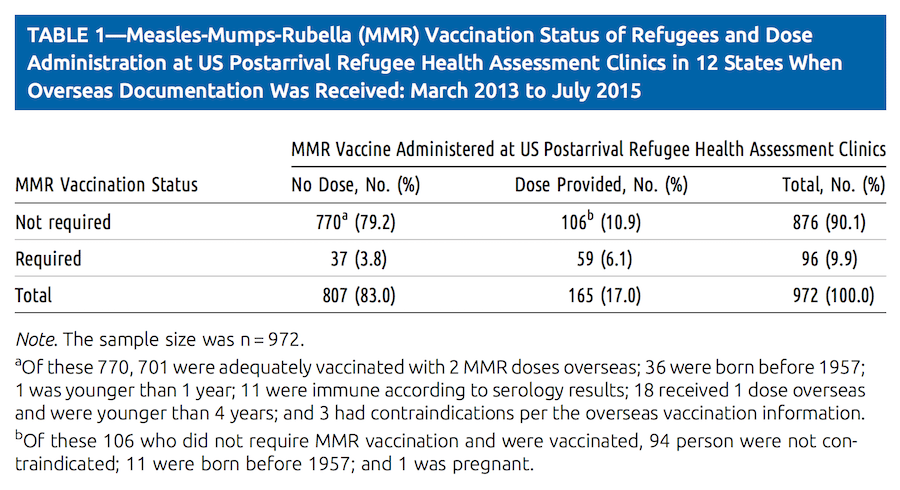
The overseas program has vaccinated nearly 200,000 refugees since its inception. The health of incoming refugees is an important part of the resettlement process. Evaluation of such public health programs for immigrants and refugees should play an important role in the polarized immigration debate by providing empirical data around health-related safety concerns.
Feature image: World Bank Photo Collection, Fatima, a Syrian refugee as her child vaccinated, used under CC BY-NC-ND 2.0. Table from Deborah Lee, Michelle Weinberg, Stephen Benoit, “Evaluation of Measles-Mumps-Rubella Vaccination Among Newly Arrived Refugees”, American Journal of Public Health 107, no. 5 (May 1, 2017): pp. 684-686. DOI: 10.2105/AJPH.2017.303698









